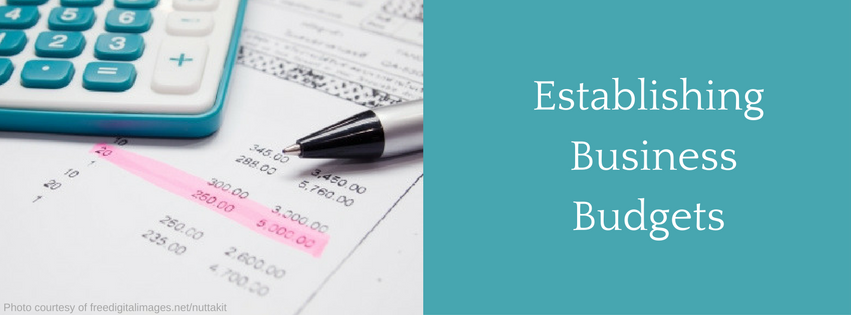Planning is needed for every size business, whether large or small. When determining a budget, allow yourself some room to maneuver for unexpected costs. Look for these 8 things to help clarify and fine-tune your financial planning:
How much will you make?
Look at past revenue and calculate your growth over that period. What are your current amounts of growth? Then, make determinations about sales, revenue, and new products/services. Make a cautious estimate of revenue and produce a budget around that number.
What are my expenses?
Profit only occurs when income exceeds expenses. Evaluate your numbers consistently, possibly by a professional auditor/company to look at your cash flow to inform you where your money is going. Look at previous years’ information to find patterns to help establish your next year’s probable expenditures. There are common expenses for all businesses. A sample of these costs are as follows: production costs, wages and benefits, rent/mortgage, utilities, website/Internet costs, supplies, and equipment. You may have to be flexible with some of the costs in your budget, such as supplies and equipment. If you overestimate your expenses you may have surplus funds left over (not a bad thing!) However, the initial cost to purchase may be more than you expect. Going over your budget every month is a good idea to help you get an estimate of your ongoing expenses.
How is your cash flow?
Will you run out of cash? Closely examine how much credit you give to customers before problems start. Running out of money is not an option. Dissect your budget into small parts so nothing is overlooked. Reviewing your estimated cash flow will help you determine if you’ll have money to pay your obligations.
Upcoming Costs
Are there any future expenditures being considered such as remodeling, technology investment, or potential travel? Plan for these purchases so that these cash outlays are included in the budget. Try to think ahead on expenditures so there are no surprises to your bottom line.
Projecting years to come
Plan for future projects. Figure out how much can be saved each year. Preparing for the next three years is a wise strategy. That way, you can see what future projects are feasible within a certain time frame.
Have a financial cushion
Ideally, there should be enough extra cash in the bank to cover unexpected expenses. Have a savings goal and let it build up for a set time of your choosing. If it gets depleted, rebuild it again.
Upticks in spending
If you are flush with cash and your budget is great, you may be in a position to spend more or certain expenditures. Whether it’s hiring someone or expanding your products/services, there is likely an area that could use a financial boost to help your firm grow. Sometimes spending a few dollars extra in marketing will make a great increase in your bottom line.
Possible reductions in spending
Refine your budget if necessary. Savings built over time add up to better money management. If there is a way to trim expenses, it would behoove you to do so. Look at what you spend on utilities, contracts, and other monthly expenses for possible savings available. It can save you a lot in the long term.
When a realistic budget is established it helps your business make it through great and hard times. Revisit your budget periodically to make necessary changes and plan for your future.
This information was previously shared in Allbusiness.com in a blog written by Jason Kruger.
Photo courtesy of freedigitalimages.net/nuttakit
If you’d like some tips on how to save money personally, here is some great information: https://www.dccu.us/blog/simple-money-saving-tips-to-give-your-budget-a-serious-boost/
